Aim
To mark the 250th anniversary of the birth of Jane Austen in 2025; to celebrate her contribution to storytelling and consider celebrity.
The video
Writers and spoken word performers Lizzie, Emily, and Casey share their unique perspectives on Jane Austen’s work.
VO:
She's one of the most famous writers in English literature. Her novels have been translated into more than 40 languages and are known and loved the world over. They've been made into countless film and TV adaptations and inspired blockbuster films.Her face stares out from the 10-pound note. She's Jane Austen, born in 1775, in Steventon, a village in Hampshire.
Jane Austen is famous for writing just six novels, and the first four were published without her name, so hardly anyone knew who she was at the time. She didn't get much recognition during her life either. So how has a writer with such a small number of books written over 200 years ago become so popular and loved today? What is the secret of Jane Austen's extraordinary success?
Emily, Casey, and Lizzie are three writers and spoken word performers who admire Jane Austen's work and its impact.
Emily:
What if we did not want to be a wife?
What if we strived for more than a life defined by our proximity to men. What then? What if we could boast the same qualities as them?
Be brave and stubborn, pen, to govern our own minds.
What if we could be both kind and meddling, fiercely loyal whilst reveling in gossip, hopelessly romantic whilst wrestling with what it means to be in love and not give up on ourselves?
What if we were more than merely pretty?
Pretty strong. Pretty quick. Pretty sharp. Pretty witty.
And what if we were flawed?
Jaw-droppingly difficult. Articulate and principled.
Intricate and political.
And what if a woman broke the mold?
Now would she have to stay humble? Could she brag and be proud?
Would she be applauded and awarded the same accolades as men?
Could she write with abandon, her words all aflame?
Could she claim her own truth without it being tamed?
Could she say that she penned it without fear or shame?
Unlike Jane Austen, could she give it her name?
Casey:
Isn't always torchlight.
Sometimes the darkness is broken by words on a page.
Words that tell us that what we call sense isn't always sensible.
And pride is not always commendable. It isn't always spectacles.
Sometimes clarity is dancing from a pen, prying open the eyes of all who missed it. To see everything that is wrong is to begin a dream of growth.
Half agony, half hope.
If nothing else explains then time does.
What we think and say does not define us.
Words on a page go past thought and her observation past what she saw.
We have been shown what was always there and there is no unseeing it.
Lizzie:
People say write what you know.
So Jane let her words flow.
Signed from a lady and she was shady.
Using her scathing wit because she knew where we all fit.
Crossing with ease from one circle to the next.
Her text is a reflection of every direction she climbed and fell on the social ladder.
Write what you know.
So Jane put herself on show through Lizzie.
My namesake, whose criticism can shake the pride inside the upper classes.
She is all of these lasses, naive as Lydia, but just as free.
Strong as Eleanor, but cold as she must be.
Studious as Mary.
Kind as young Anne. Clever as Emma. Romantic as Marianne.
She listens and shines through every line, talking directly to you and the women who needed to be known.
Her voice has shown the power of words.
Strong and sarcastic.
Cruel and fantastic.
Video summary
Three young poets / spoken word performers perform short pieces inspired by Jane Austen and her works. The first is Emily Kate Groves, who writes about Austen's creation of strong female characters. The second contribution is from Casey Bailey, who considers how Austen's works include acute observation. The final contributor is Lizzie Lovejoy, who focuses on writing about 'what you know' and Austen's focus on her particular social class.
A written verison of the poems can be found on the assembly framework PDF and in the PowerPoint below.
Context
16 December 2025 will mark the 250th anniversary of the birth of Jane Austen - one of the most celebrated writers in the English language.
Jane Austen was born in a small village in Hampshire in 1775. She was one of eight children - part of a middle-class, largely unremarkable, family. She began writing in her teens.
Austen's reputation is built on a comparatively small body of work: just six published novels, two of which were not published until after her death. Her first novel, Sense and Sensibility, appeared in 1811. Her next novel, Pride and Prejudice - which she described as her 'own darling child' - followed in 1813. Mansfield Park was published in 1814, then Emma in 1816.
All of Austen's novels were published anonymously, so she achieved comparatively little acclaim during her lifetime and enjoyed only modest financial reward from her work.
In 1816, Austen began to suffer from ill-health, probably due to Addison's disease. She travelled to Winchester to receive treatment, and died there on 18 July 1817. Two more novels, Persuasion and Northanger Abbey, were published posthumously and a final novel was left incomplete.
Austen's work is characterised by social commentary, irony and wit. She created strong female characters, and showed that the inner thoughts and feelings of her characters - rather than action - was suitable material for a novel. She is unusual in that she is revered by both critics and readers alike. She is buried in Winchester Cathedral.
Austen's works have been translated into more than 40 languages. They have been the source for countless adaptations for stage, TV and screen and the blockbusters 'Bridget Jones's Diary' and 'Clueless' were both based on her works.
In 2017 Austen became the face on the reverse side of the £10 note.
Possible discussion points before the video
- Who do pupils think are the most famous writers in English?
- Why do pupils think great writers - like Shakespeare - are so revered?
- What do they know of Jane Austen? Can they name any of her novels? [Pride and Prejudice is a GCSE set text].
Possible discussion points after watching the video
- Jane Austen is the face of the £10 note (ie the side that is not the late Queen / current King). Would a great footballer ever be given that honour? Or the inventor of a video game? If not, why not?
- If it was their choice, who would pupils put on the £10 note?
- What qualities of Jane Austen's writing do the spoken word performers celebrate?
- What does it mean when we say 'Write what you know'?
- Jane Austen's novels are 'By a Lady'. Why do pupils think that Austen published her works anonymously? Do they think a writer or other artist might choose to do that today? [Emily Kate Groves' piece makes reference to the anonymity at the end].
Resources
Assembly framework (PDF, 191KB) documentAssembly framework (PDF, 191KB)
Download / print the assembly framework for use
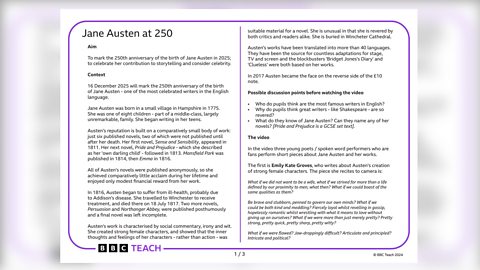
Presentation (PPT, 82KB) documentPresentation (PPT, 82KB)
A series of slides for use during the assembly
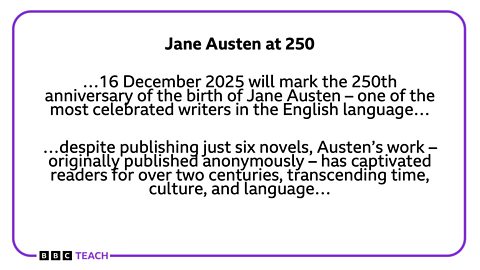
Related links
Bitesize: Pride and Prejudice. collectionBitesize: Pride and Prejudice
Easy-to-understand GCSE English homework and revision materials for Pride and Prejudice.
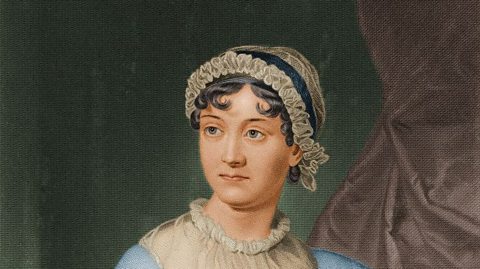
Classic Stories. collectionClassic Stories
A collection of timeless fiction from the literary greats. Through BBC Sounds, you and your class can enjoy unabridged audio versions of classic novels.

Secondary assemblies
1971 Women's World Cup: The Lost Lionesses – secondary assembly resources. collection1971 Women's World Cup: The Lost Lionesses – secondary assembly resources
An assembly framework and video to celebrate a major sporting occasion and the achievements of the England women's football team who competed in the 1971 Women's World Cup in Mexico.
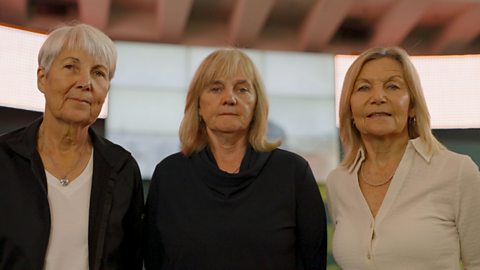
VE Day 80th anniversary – secondary assembly. collectionVE Day 80th anniversary – secondary assembly
An assembly framework and video to commemorate 'VE Day' on 8 May and to consider what life was like in the UK in the years immediately after World War II.

Anti-Bullying Week – secondary assembly. collectionAnti-Bullying Week – secondary assembly
A secondary assembly framework and video to mark Anti-Bullying Week focusing on the power of words and the need to use them carefully.

Holocaust Memorial Day – secondary assembly. collectionHolocaust Memorial Day – secondary assembly
An assembly framework and video to help mark Holocaust Memorial Day. In this video, Emma-Louise Amanshia meets John Hajdu MBE to hear about his experiences of surviving the holocaust.
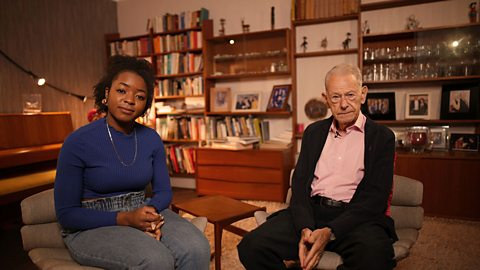
Safer Internet Day - secondary assembly. collectionSafer Internet Day - secondary assembly
An assembly framework and video to mark Safer Internet Day, celebrate online safety and to consider practical steps to remaining safe online.

D-Day – secondary assembly. collectionD-Day – secondary assembly
Two videos about the D-Day landings from both a British and German perspective to provide an understanding of the actions of the human beings involved on both sides.
